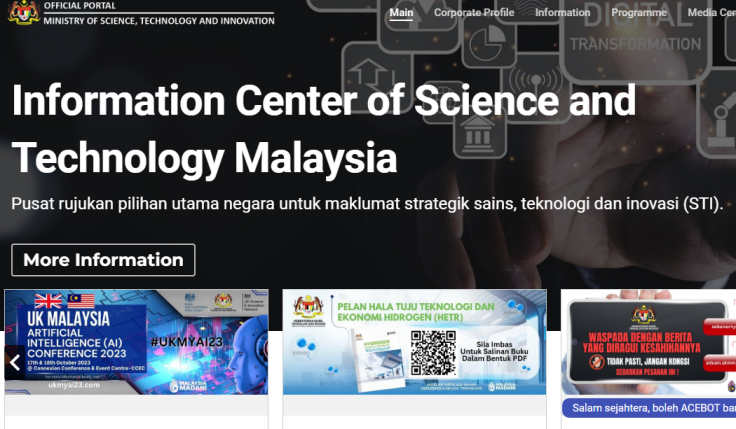Malaysia Working On AI Code Of Ethics, To Be Ready By 2024

KEY POINTS
- Malaysia's standards department has also established a committee to develop national AI standards
- The science and technology ministry is looking to draft a bill to regulate AI apps
- The ASEAN bloc is reportedly taking a more business-friendly approach toward regulating the technology
Malaysia is reportedly working on a code of ethics for artificial intelligence, which is expected to be completed in 2024.
"MOSTI [Ministry of Science, Technology and Innovation] in collaboration with University Teknologi Malaysia, along with representatives from Government agencies, higher education institutions and industry are developing a code of ethics and AI governance," Malaysia's Science and Technology Minister Chang Lih Kang wrote on X on Tuesday, according to a Google translation.
Minggu ini dalam sidang Dewan Rakyat ada persoalan dibangkitkan mengenai pemantauan penggunaan teknologi AI.
— Chang Lih Kang (@changlihkang) October 10, 2023
Teknologi Artificial Intelligence (AI) adalah satu teknologi yang kompleks dan proses pengawalan dan pemantauannya melibatkan pelbagai aspek seperti teknikal,… pic.twitter.com/qoYe6Cx6Lm
Apart from a code of ethics for AI, the ministry also looks into the need for a "legal framework and an AI Act." The Malaysian Standards Department (JSM), which provides standardization and accreditation services for global competitiveness, has already set up a National Mirror Committee to develop national AI standards, he added.
Malaysia's National AI Roadmap 2021-2025 outlined seven AI principles – privacy, security, fairness, inclusivity, transparency, accountability and pursuit of human benefits and happiness – that could guide the country in its adoption of AI technology.
The minister said the principles will help in framing AI guidelines that ensure individual rights are protected and privacy abuse is prevented.
Chang, in July, said his ministry was looking to draft a bill to regulate AI-powered applications in the country through consultations with tech experts, stakeholders, legal experts and the public. It was considering AI labeling to let users know if a piece of content was generated using artificial intelligence.
"It is a strategic move considering the global trend toward stronger regulations around AI usage," Chang said at the time.
People in Malaysia have a positive attitude toward AI, a survey by Ipsos showed. In the survey, 69% of Malaysians said they believe AI products and services have more benefits than drawbacks and 70% trust AI companies as much as they trust non-AI companies.
Malaysia's move toward AI regulation is in line with the goals of other ASEAN (Association of Southeast Asian Nations) members, who want to set "guardrails" on the fast-evolving tech.
In June, Reuters reported that Southeast Asian nations were drawing up ethics and governance guidelines for AI. They hope an ASEAN Guide on AI Governance and Ethics would help balance the risks and economic benefits AI can bring to the 10-member bloc, the report said, citing five officials with direct knowledge of the matter.
"The drafting is ongoing and it could be completed towards the end of the year before it is endorsed by ASEAN members," an official told Reuters.
The bloc was reportedly taking a more business-friendly approach toward regulating the technology. The move is deemed as a pivot away from the European Union's aim to have universal laws that match its proposed AI Act.
© Copyright IBTimes 2025. All rights reserved.




















